Becoming an Olympic champion at least once in a lifetime is an unattainable dream for many athletes. But some lucky ones manage to win gold, silver and bronze medals not once, not twice, but ten or more times.
We present you with a list of the most titled Olympic champions in the history of sports.
10. Birgit Fischer, Germany
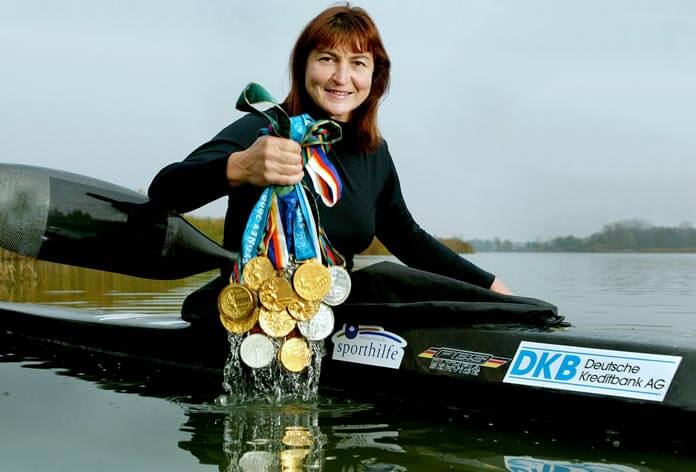 Total medals: 12.
Total medals: 12.
Of these, 8 are gold, 4 are silver, and 0 are bronze.
Here is a photo of the only woman who managed to win at least two medals in five Olympics.
Fisher was 42 when she won gold in the 500m quadruple and silver in the 500m pair, making her the oldest Olympic champion in canoeing.
It's funny that Fischer is also the youngest champion, as she won her first gold in 1980, at the age of 18.
9. Paavo Nurmi, Finland
 Total medals: 12.
Total medals: 12.
Of these, 9 are gold, 3 are silver, and 0 are bronze.
The runner was part of a group of Finnish athletes known as the “Flying Finns.” He quickly gained international fame when he began his career at the 1920 Antwerp Olympics. His steady, mechanical stride at the start of the race would give way to a furious burst of speed as the finish line approached.
Nurmi set 22 official world records at distances ranging from 1,500 meters to 20 kilometers. He is considered the greatest track and field athlete of all time.
8. Ole Einar Bjoerndalen, Norway
 Total medals: 13.
Total medals: 13.
Of these, 8 are gold, 4 are silver, and 1 is bronze.
At the 2012 Winter Olympics, Bjørndalen left no chance for his rivals, winning 4 out of 4 possible victories. He became the first person in the world to become the absolute Olympic champion in biathlon.
However, Bjørndalen received his personal gold medal only 12 years after his finest hour in Salt Lake City. It happened in Sochi in 2014. Then, the pride of the Norwegian team managed to win against his closest rival by just over a second, despite one miss at the start. That year, Bjørndalen became the oldest winner of the individual biathlon race in the history of the Olympic Games.
Most recently, in 2018, the Norwegian athlete announced the end of his sports career.
7. Takashi Ono, Japan
 Total medals: 13.
Total medals: 13.
Of these, 5 are gold, 4 are silver, and 4 are bronze.
This Japanese gymnast is one of only three Olympians to have won at least four medals of each category. He also became the first Japanese Olympic champion in artistic gymnastics.
At the opening ceremony of the Tokyo Olympics in 1964, Takashi Ono had the honor of reciting the Olympic oath on behalf of all athletes. At the same Olympics, he won his fifth and final gold medal.
6. Edoardo Mangiarotti, Italy
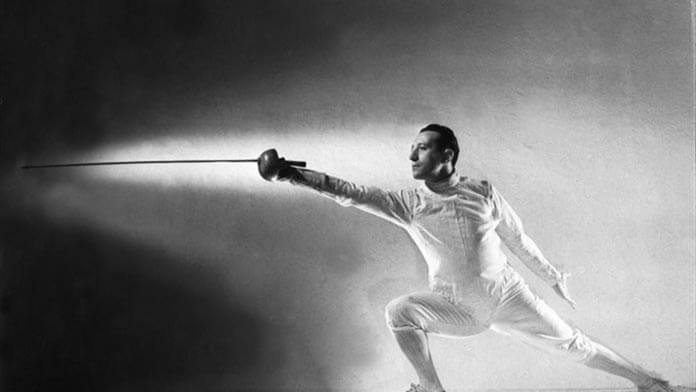 Total medals: 13.
Total medals: 13.
Of these, 6 are gold, 5 are silver, and 2 are bronze.
When it comes to fencing, no one comes close to Italian maestro Edoardo Mangiarotti, who has proven to be the most prolific winner at the Olympic Games and World Championships.
Fencing talent runs in the veins of the Mangiarotti family. Edoardo's father was a 17-time Italian epee champion. He advised his son to become left-handed (even though he was naturally right-handed) to gain an advantage in the sport. Edoardo's fencing style was inconvenient for his opponents.
Mangiarotti began taking fencing lessons at the age of 8. He trained with his brother Dario, who is also an experienced fencer. Edoardo won his first gold medal at the age of 17.
5. Boris Shakhlin, USSR
 Total medals: 13.
Total medals: 13.
Of these, 7 are gold, 4 are silver, and 2 are bronze.
The top five Olympic athletes who won the most medals included two gymnasts and one gymnast from the USSR. Shakhlin is the first of this trio.
Being an orphan, he managed to reach the sporting Olympus without any patronage from above, largely thanks to the support of his first coach V. A. Porfiryev, who taught the boy to fight to the end.
For his calm and confident manner during sports competitions, foreign journalists called Shakhlin the “Russian bear.”
4. Marit Bjorgen, Norway
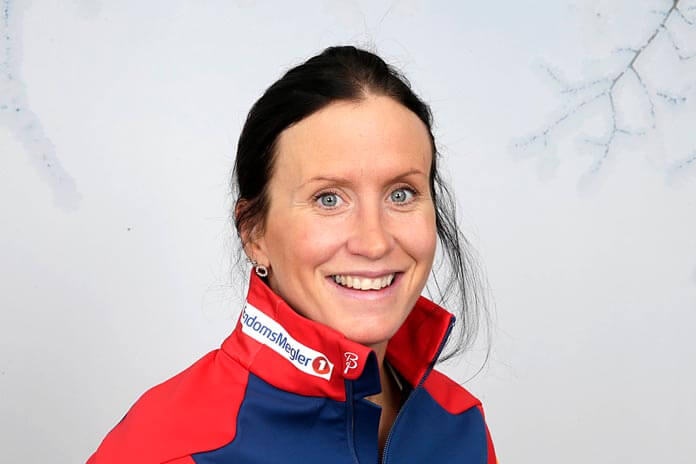 Total medals: 15.
Total medals: 15.
Of these, 8 are gold, 4 are silver, and 3 are bronze.
Although Soviet gymnast Larisa Latynina has more Olympic medals than Bjørgen, the Norwegian skier is the most decorated athlete in the Winter Olympics and is considered the strongest female skier in modern history.
However, Marit Bjørgen's name is also associated with high-profile scandals. In 2009, she received permission from the FIS to use asthma medications that contained doping substances, including formoterol. This caused displeasure among many other athletes. For example, Polish skier Justyna Kowalczyk said that without the help of the drugs, Bjørgen would not have been able to achieve her current stunning results.
3. Nikolay Andrianov, USSR
 Total medals: 15.
Total medals: 15.
Of these, 7 are gold, 5 are silver, and 3 are bronze.
Adrianov's first coach Nikolai Tolkachev played a huge role in his brilliant career. He persuaded the boy not to give up gymnastics, and even helped him with his homework and attended parent-teacher meetings. And Tolkachev's efforts paid off a hundredfold. His protégé became a multiple world, USSR and European champion.
Until 2008, this Soviet athlete held the title of absolute record holder for the number of Olympic medals, until American Michael Phelps received his 16th medal.
2. Larisa Latynina, USSR
 Total medals: 18.
Total medals: 18.
Of these, 9 are gold, 5 are silver, and 4 are bronze.
This multiple Olympic champion helped establish the Soviet Union as a dominant force in gymnastics.
Although Michael Phelps beat her in total medals, Latynina's record for medals won in individual events (14) remains unbeaten.
Latynina was so dedicated to the sport that she competed in the 1958 World Championships in Moscow while four months pregnant. Her performances combined the grace and spectacle of dance with the consistency and skill of an experienced athlete.
In 1966, Latynina became the coach of the USSR national artistic gymnastics team. Her team won gold three times during the Olympic Games in 1968, 1972 and 1976.
1. Michael Phelps, USA
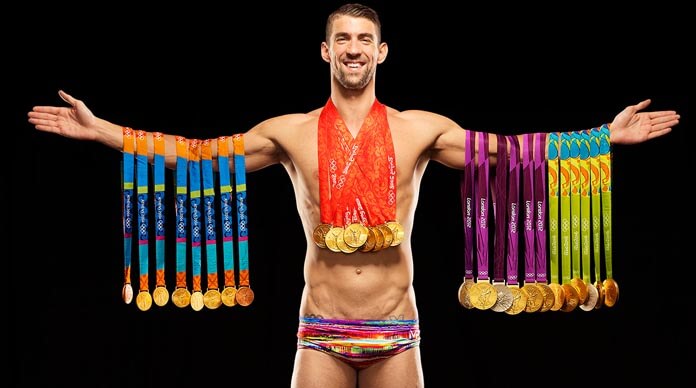 Total medals: 28.
Total medals: 28.
Of these, 23 are gold, 3 are silver, and 2 are bronze.
The clear winner in the ranking of the most titled Olympic champions is American swimmer Michael Phelps. He can boast both the largest number of Olympic gold medals and the largest number of medals in general. He is called "the greatest Olympian of all time."
The "Baltimore Bullet" (one of Phelps' nicknames) became the only 23-time Olympic champion in sports history. However, other Olympians have a chance to surpass this achievement, since Phelps announced his final retirement from professional sports after the 2016 Rio Olympics.
Why is he so good?
Michael Phelps's strengths are his height, weight, and the length of his arms and legs. His long torso and short legs reduce the resistance to his body's movement in the water and allow him to swim forward as quickly as possible. He wears size 12 shoes.
Phelps's arm span is 203 cm and his height is 193 cm. Even as a schoolboy, he could hug five classmates in one go. Noticing this feature, useful for a swimmer, coach Bob Bowman invited the young man to the swimming section.
If ordinary people consist of 80% of water, then Phelps consists of 90%. He even got into the Guinness Book of Records as an athlete who can drink more liquid than he weighs himself - 91 liters.
And his heart is capable of pumping about 30 liters of blood per minute. Thanks to this, the most titled athlete in history quickly recovered after intense swims.

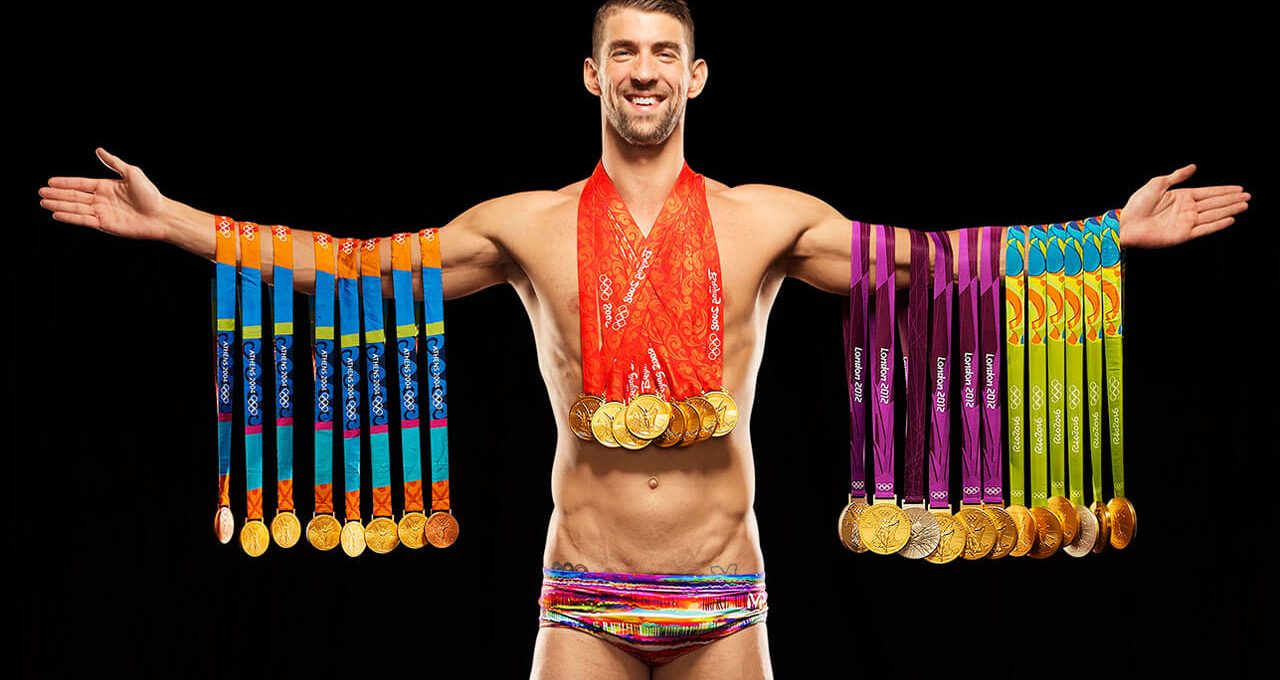












Оставить Комментарий